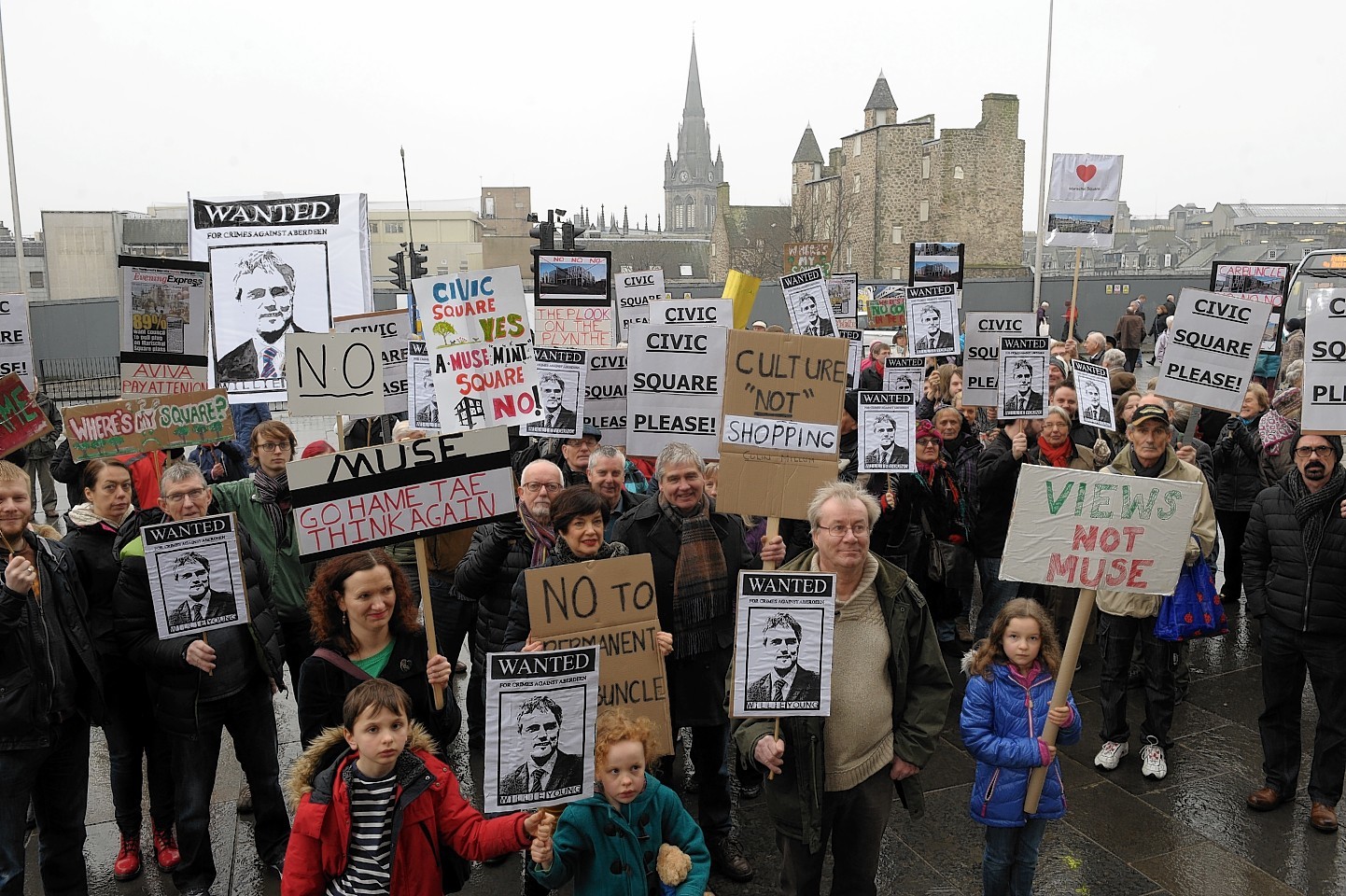A powerful watchdog is to probe the handling of Aberdeen’s controversial Marischal Square scheme – and has questioned the local authority’s “vision” for the city.
The Audit Scotland regulator said complaints made about the £107million development would be investigated as part of an annual review, due to be published in autumn.
But local politicians and campaigners claimed last night that date was “far too late”, and the findings should be published “as a matter of urgency”.
Audit Scotland revealed it would investigate the scheme in a new report which warned the Labour-led council had “significant areas for improvement”, including a failure to back up its overall vision with clear objectives and targets.
The “best value audit” also said that £50million of spending cuts would be needed at the council over the next five years, and specifically highlighted policies on elderly care, educational attainment, and reducing inequality as “not clear”.
However, the report praised the council on a number of aspects, including the “effective working relationship” between chief executive Angela Scott and local authority leader Jenny Laing, as well as its “sound financial management”.
It represented a major improvement on the damning best value report in 2008 which led to a humiliating public inquiry into the running of the council by the Accounts Commission, and the early retirement of its then-chief executive Douglas Paterson.
Mrs Laing said last night: “We’re pleased the report acknowledges the good progress that Aberdeen City Council has made in a number of areas, particularly financial management, business planning and cross-party working.
“The report clearly shows that the city now has a record of sound financial management, and I think that’s very important given the findings and issues identified in the 2008 audit.”
The report highlights a number of “high profile decisions that have strained political working relationships” in recent years, including banning Scottish Government ministers from public buildings in the city, and the “very unusual” distribution of pro-UK leaflets with annual council tax bills in the run-up to last year’s independence referendum.
On Marischal Square, the report said Audit Scotland had received correspondence from members of the public about the scheme.
It added: “We will consider the points they raise on this specific issue as part of the annual audit, reporting to the elected members and the Controller of Audit in autumn 2015.”
Aberdeen Central MSP Kevin Stewart wrote to Audit Scotland last month to urge it to launch a probe into the council’s decision-making process when it allowed Muse Development’s plans for a hotel and retail complex on the Broad Street site.
He said last night: “I’m glad that Audit Scotland is going to look at this specific issue raised by members of the public and others as part of the annual audit. However, I feel that reporting back on this issue in the autumn is far too late.
“People feel that many of the processes in determining this development were flawed and citizens have concerns about the entire gamut of this project.”
Lorna McHattie, a key figure in the campaign to stop the Marischal Square development, said: “Our view would be that really this should be done as a matter of urgency, because if there are things found not to be part of the process then we would be trying to stop any further work on the site until we’re absolutely sure everything is as it should be.
“It’s obviously easier to stop a development when they are at the stage of clearing the site.
“We’re disappointed because, if they’ve had many complaints, they should be coming in sooner rather than later.”
Mrs Laing said: “We’re comfortable that the processes that we followed were correct, that it was a democratic decision of the council to go ahead with that development.”
The Audit Scotland report will be considered by the Accounts Commission at its meeting on Thursday, before its official publication next month.
On the city council’s vision, the watchdog said: “The council has an agreed vision but it is not supported by a clear set of objectives and targets.
“It is important that the council sets clear priorities for its services, particularly given there is evidence of some significant areas for improvement in service performance.
“The council’s priorities in areas such as older people’s care, educational attainment, and reducing inequalities are not clear.”
However, there was praise for the council over its efforts to improve working relationships.
“The new leader of the council, who was appointed in May 2014, and the new chief executive have an effective working relationship, and both demonstrate inclusive leadership styles,” the report said.
On the local authority’s finances, it said: “The council has improved its financial position since 2008 and it now has a record of sound financial management.
“This is a good foundation for delivering its next five-year business plan. The council has also built up considerable reserves.”
Despite improvements in cross-party working, the report said that “relationships between elected members can be challenging at times” and that the council “should consider introducing further guidance for elected members and officers”.
Comment, Page 25

